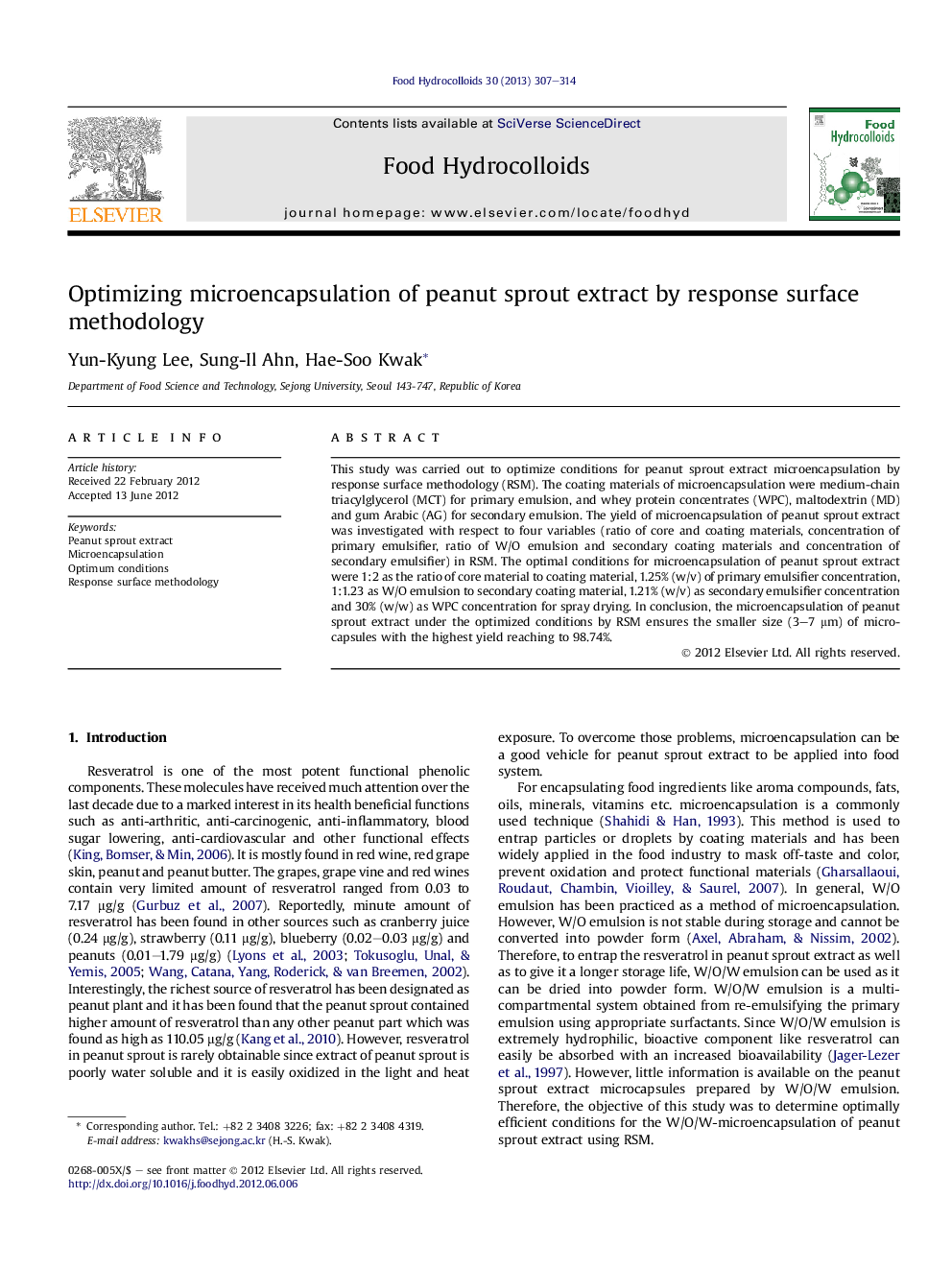| Article ID | Journal | Published Year | Pages | File Type |
|---|---|---|---|---|
| 604754 | Food Hydrocolloids | 2013 | 8 Pages |
This study was carried out to optimize conditions for peanut sprout extract microencapsulation by response surface methodology (RSM). The coating materials of microencapsulation were medium-chain triacylglycerol (MCT) for primary emulsion, and whey protein concentrates (WPC), maltodextrin (MD) and gum Arabic (AG) for secondary emulsion. The yield of microencapsulation of peanut sprout extract was investigated with respect to four variables (ratio of core and coating materials, concentration of primary emulsifier, ratio of W/O emulsion and secondary coating materials and concentration of secondary emulsifier) in RSM. The optimal conditions for microencapsulation of peanut sprout extract were 1:2 as the ratio of core material to coating material, 1.25% (w/v) of primary emulsifier concentration, 1:1.23 as W/O emulsion to secondary coating material, 1.21% (w/v) as secondary emulsifier concentration and 30% (w/w) as WPC concentration for spray drying. In conclusion, the microencapsulation of peanut sprout extract under the optimized conditions by RSM ensures the smaller size (3–7 μm) of microcapsules with the highest yield reaching to 98.74%.
Graphical abstractCore material: Extract of peanut sprout 1 mg/mL. Coating materials: A: 30% Whey protein concentrate (WPC); B: 30% Maltodextrin (MD).Figure optionsDownload full-size imageDownload as PowerPoint slideHighlights► W/O/W microcapsules of peanut sprout extract can be optimized and produced by RSM. ► The microencapsulation yield of peanut sprout extract under optimized conditions showed 98.74%. ► WPC was the most effective coating material. ► Average size of the microcapsules was from 3 to 10 μm ► The microcapsule of peanut sprout extract was the most stabilized with WPC.
